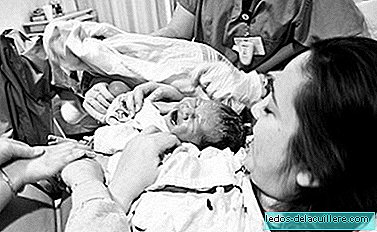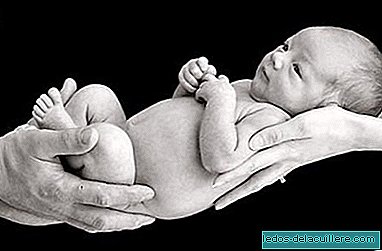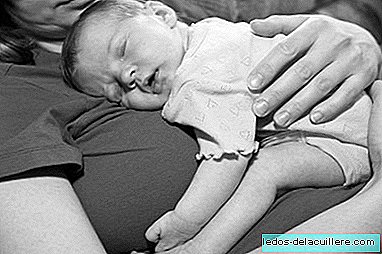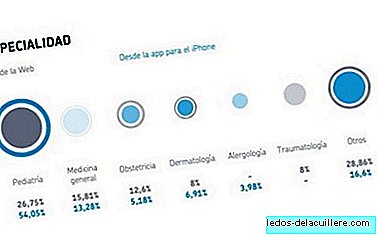
Reviewing the practical guide to normal delivery care of the World Health Organization I find a curious fact that was verified a few years ago and that ensures that A primiparous woman with low obstetric risk can be seen during a six-hour delivery by up to 16 different people in a hospital.
Despite these "revisions," the woman is alone most of the time, and feels lonely when there is no continuous companion or it is not the same professional who accompanies and guides the birth process.
This study was prepared by Hodnett and Osborn, from the University of Toronto School of Nursing, back in 1989, when they were also engaged in other research to verify that continuous and direct support to women is beneficial for the development of childbirth.
This continuous professional treatment (specifically, that of a nurse monitor) was associated with less intervention and a lower request for pharmacological pain relief methods. Mothers remembered having more physical comfort measures and greater emotional support compared to other mothers who received the usual accompaniment.
Many years have passed since these factors were known, however Today, women are still seeing too many people during childbirth. People he has never seen, with whom they have never spoken, which makes him feel more strange and less accompanied.
It may not be 16 different people in my case, but I do remember that strangeness and that fear of the unknown when someone "new" arrived who did not know exactly what was coming while he was dilating in the room.
I really think it would have been different if it had been the gynecologist or the midwife I knew who "leaned out" every so often to check that everything was going well, to solve my doubts. Or the same person who made a presence more often. But it was to see the door open and think ... "What will it knock now?"
And this is one of the risks of the hospital, although it has other positive parts that provide security and makes the majority of women decide for this place to give birth.
But the routine, the presence of strangers, and being left alone during childbirth cause stress in the mother, which can interfere with the birth process by prolonging it and triggering the interventions.
There are many studies about the support offered during childbirth by a person, doula, midwife or nurse, which show that continued and physical support during childbirth brings great benefits, among them, shorter births, less use of medication and epidural analgesia, less instrumental deliveries ...
Wouldn't it be worth worrying about this issue more in hospitals? No doubt many try now, but there is still a way to go.












